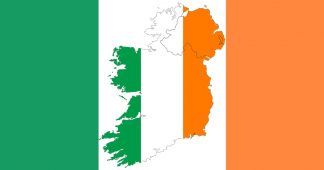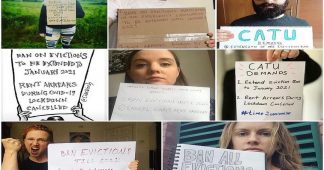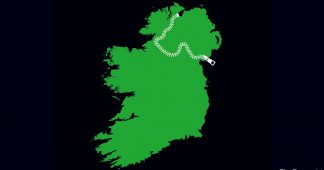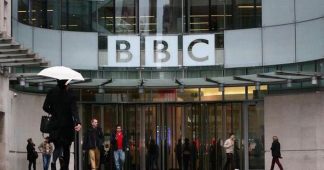By Declan Hayes
May 4, 2022
Journalism’s best days are long gone. And, unless NATO’s journalists have a collective Damascene moment, they too will deservedly go the way of the dodo.
Although Americans still buy some 20 million newspapers a day, advertising revenue has tanked and cost-saving mergers, sackings and acquisitions are up. Although the United Nations has taken due note of this trend, their answer, which the British government shares, is to further increase government subventions and tighten government regulations to ensure our continued access to their fake journalism.
Although NATO government subventions kept their compliant media afloat during the two-year Covid lockdown, they did so to control public discourse, not for the public good, which would have been better served by regular radio and television updates.
During Covid, the government bankrolled the media to curry favor with them on the principle that he who pays the media piper, will forever call the tune. As part of their payback, the media have never questioned the government’s culpability in the high death rates in isolated old folks’ homes or its collusion with Big Pharma and other concerns who reaped the Covid lockdown bonanza. If there are Irish or British media outlets holding power to account, I am not aware of them.
No standards
Although now ostracised journalist John Waters wrote in the Irish Times about how the media had betrayed their own code of ethics and supposed standards for cheap copy, it might well be that today’s journalists are incapable of doing better. Naomi O’Leary had a recent two-page spread in the Irish Times, Ireland’s supposed paper of record, castigating “Mick Wallace, popularly known as the ‘Golden Lion King’ in China, and fellow MEP Clare Daly” for having become staples of state-controlled media in the Russian, Chinese, and Arabic languages.” O’Leary’s piece seems to have been spurred by the emergence of Irish MEPs Daly and Wallace as two of the more prominent critics of NATO’s and the EU’s pro-war policies. Although O’Leary’s main thrust is that the two MEPs have featured in Arabic, Russian and Chinese media, there is an implicit condemnation of Daly and Wallace for defending very vulnerable political dissidents in the Baltic states.
The piece, remarkable only for its lengthy banality, was the result of the Irish Times spending 10 months tracking the pair’s international footprint to tell us that “State controlled Chinese media” have given the pair extensive coverage but have never bothered mentioning the Irish Prime Minister even once. Although the cited Russophobic Lithuanians who think that imprisoning their dissidents should be no more newsworthy than “a traffic accident that happened in a province of the Democratic Republic of [the] Congo” should have been grilled on their fascistic beliefs, that would be to mistake the Irish Times’ O’Leary for a journalist.
New role
Although Daly and Wallace have cogently expounded on both their views and their electoral mandates elsewhere, the media’s evolving role is to propagate Newspeak, much as NATO uproots peace, democracy and discussion wherever it lays its cloven hoof.
NATO’s problem is young people now look elsewhere for sports’ coverage and TikTok does not lend itself to deep analysis. But nor does the legacy media; the days of in-depth coverage, typified by the Sunday Times Insight Team or by the Watergate Scandal are long gone. The British and Irish media have no interest in uncovering scandals that the dogs in the street have long known about. Because such work takes too much time, costs too much money and makes too many powerful enemies, the media instead choose the low hanging fruit of ignorantly ranting about Putin and Asma Assad, as that is far safer, more marketable and more cost efficient than spending 10 months to discover that Mick Wallace has a nickname in China and that persecuting Lithuanian dissidents is no more newsworthy than “a traffic accident that happened in a province of the Democratic Republic of [the] Congo.”
Five Ws
The issue here is that the old days of ritually objective news reporting (he said/she said), the “who, what, when, where” of stories have been overwhelmed by “why.” This increased media emphasis on analysis in news coverage has not been accompanied by an ability to deliver that analysis. One has either intellectually challenged journalists like O’Leary or one has a succession of NATO spokespeople, all of them coached by professional PR companies, to drown their readers and viewers in seas of meaningless shibboleths and sound bites about evil Putin, evil Assad and whatever it is Queen Elizabeth had with her toast for breakfast.
Misinformation
Legacy media apologists justify its existence by saying they protect us from misinformation, examples of which are President Eisenhower’s unchallenged lies about the U-2 spy plane, President Kennedy’s lies about the missile gap, President Johnson’s unchallenged lies about the war in Vietnam, President Nixon’s long-unchallenged lies about Watergate and, of course, Saddam Hussein’s non-existent weapons of mass destruction which is particularly noteworthy for the way NATO’s state affiliated media cheered on NATO’s war crimes.
If our legacy media did not protect us from misinformation in the past, why should they be any different now? If you want an answer to that rhetorical question, you will not find it in the legacy media as, Queen Elizabeth’s choice of muffins apart, theirs is not to wonder why.
State-affiliated media
Former British MP George Galloway is currently suing Twitter for, he alleges, wrongfully designating him as being Russian-affiliated media. Twitter’s rules and policies clearly state that State-affiliated media which they define as “outlets where the state exercises control over editorial content through financial resources, direct or indirect political pressures, and/or control over production and distribution” will be so labelled and down-graded but that “State-financed media organizations with editorial independence, like the BBC in the UK or NPR in the U.S. for example, are not defined as state-affiliated media for the purposes of this policy.”
Whatever about Galloway’s case, Wallace and Daly make the point in this American podcast that Russia Today, which is heavily sanctioned, covers stories the Western media, with their bottom line fixations on Royal tittle tattle, do not. They also quite rightly claim that Russia Today is no more controlled than is Irish or British state affiliated media.
There is, in the West, a sizeable market for the more serious type of coverage Russian media provides and the growing success of Galloway’s Sunday night shows is evidence that market exists, even if credible and experienced commentators like Galloway, Daly and Wallace are surplus to NATO’s media control model which is at the root of the problem. Whereas the BBC and NPR are free to misinform to their hearts’ content, Galloway and all others with the most tenuous of Russian links have to be muzzled so we can have informed debate, Newspeak style.
The Israeli model
Because Israel has pioneered Newspeak, consideration must be given to their repressive template. Criticism of their ongoing human rights’ violations is answered with brute violence and children’s tweets bring midnight militia raids. Protesting against her human rights’ violations is criminalized as hate speech and it is a lesson the Zelensky regime as well as the aforementioned regimes in the Baltics have copied to good effect. If we want the creeping Israeli model we, who want more, must be prepared to take the very rough with the tittle tattle, the whiff of grapeshot, as Napoleon so eloquently put it.
Mary Fitzgerald & NATO’s tentacles
Sometimes, a loyal NATO editor instead suffices. After winning an American scholarship to study journalism in a small Catholic university in Florida with strong links to the U.S. military, Mary Fitzgerald returned to Ireland as foreign affairs editor for the Irish Times. In this role, she wrote countless stories praising Irish fanatics who joined Libyan and/or Syrian CIA linked terrorist groups. Fitzgerald’s role as foreign affairs editor allowed her block stories by SCF contributor Finian Cunningham, who was their Bahraini stringer, documenting Ireland’s collusion with state-sanctioned torture in Bahrain. As Fitzgerald was pivotal in spreading misinformation about Libya, Syria and Bahrain to the Irish Times’ gullible readers, she has been rewarded with a string of high profile international positions. Mary Fitzgerald, like NPR’s Ruth Sherlock, is evidence of the rewards that await those chosen few who play NATO’s game of keeping their readers in the dark.
Citizen journalists
Whereas Eliot Higgins has made a successful career out of being NATO’s token ordinary man, Gonzalo Lira López, a 54-year-old Chilean-American writer who has been reporting from Kharkiv since the start of the current Ukrainian war, has not been so lucky. Although the Daily Beast lambasted López for his sexist views, López’ relevance is that, as he was “our man on the spot,” he could ask the hoary old question if anyone had been raped and speaks English.
Although López’ fate brings into focus the role of non-NATO aligned citizen journalists in Syria, Palestine, Ukraine and elsewhere, there would be no need for any of them if the legacy media did its job. If, as seems likely, NATO’s Nazi allies have disappeared him, there is nobody in Kharkiv to inform us about his fate, except perhaps some Nazi aligned stenographer to tell us that López’s fate is no more newsworthy than “a traffic accident that happened in a province of the Democratic Republic of [the] Congo”.
If it bleeds, it sometimes leads
Though John Cantlie, a friend of the British Royal Family and James Foley are but two of the 1440 journalists The Committee to Protect Journalists say have been murdered between 1992 and 2022, if one goes through their data base, one sees that the overwhelming majority of deaths are of Syrians, Palestinians and similar folk working on their home turf, whilst under NATO’s cross hairs. Like their fallen compatriots, they are not deemed as newsworthy as NATO’s own entitled Westerners.
Marie Colvin was a one eyed American journalist who died fighting alongside foreign terrorists in the Old City of Homs in February 2012. The state controlled BBC now claim the family of this asset, who entered Syria illegally to help the suicide bombers, is suing the Syrian government. Although there is supposed to be a movie in the works about this agent of influence, had the Syrian authorities captured this modern day Lord Haw-Haw, they would have been as justified in jailing her for life as the Red Army were in designating the French SS remnants defending Hitler’s Reichstag as enemy combatants. All that differentiates Colvin and her ilk from Lord Haw-Haw and the Charlemagne SS is NATO’s sense of unbridled entitlement.
Don’t hold the front page
Although journalists continue to award each other prizes and awards, the days of media scoops and holding power to account are long gone. The industry continues to streamline and, outside of horoscopes, TV schedules and sports’ results, they’ve lost their appetite for spicier or meatier fare. If you want to understand our common world, you will have to put down your preferred paper of record, switch off your TV and look beyond NATO, who not only have a dog in the fight but rig the fight as well.
The only sustainable way forward is to return to first principles and begin networking anew with independently minded folk, who regard life’s tragedies as something more newsworthy than “a traffic accident that happened in a province of the Democratic Republic of [the] Congo,” which NATO’s forces have been ravaging for over 150 years in the most unspeakable ways. Though NATO’s atrocities continue not only in the Congo but throughout the world, you will have to look far beyond their propaganda sheets to educate you and yours.
You can begin with this tweet of Gonzalo Lira López which reads: “You want to learn the truth about the Zelensky regime? Google these names: Vlodymyr Struk, Denis Kireev, Mikhail & Aleksander Kononovich, Nestor Shufrych, Yan Taksyur, Dmitri Djangirov, Elena Berezhnaya.” As the tweet finished with this sombre message: “If you haven’t heard from me in 12 hours or more, put my name on this list,” and as Ukrainian Nazis are openly boasting about having captured him, Gonzalo can consider himself very lucky to be alive.
López will not be Ukraine’s last media casualty. Very many more aspiring journalists will follow until the cancer at Ukraine’s heart is expunged by those, who do not read NATO’s papers of record or join the millions of Youtubers whose eyes well at the sight of NATO soldiers returning to their loved ones, having done the business on some other family’s loved ones.
Some day, when this war in Ukraine is going to end, Hollywood will make their movies about brave American Nazis stemming the tide in Mariupol, NATO’s journalists will award themselves more medals and prizes, Slavic families will quietly grieve and the media caravan will move on to NATO’s next hotspot to bamboozle us with the same old formula of how Nazis and ISIS jihadists fight for democracy and the American way of life. And we, in our turn, will be no wiser about those events unless we start searching now for answers outside of NATO’s media webs.
This article originally appeared in Strategic Culture Foundation online journal.
We remind our readers that publication of articles on our site does not mean that we agree with what is written. Our policy is to publish anything which we consider of interest, so as to assist our readers in forming their opinions. Sometimes we even publish articles with which we totally disagree, since we believe it is important for our readers to be informed on as wide a spectrum of views as possible.











